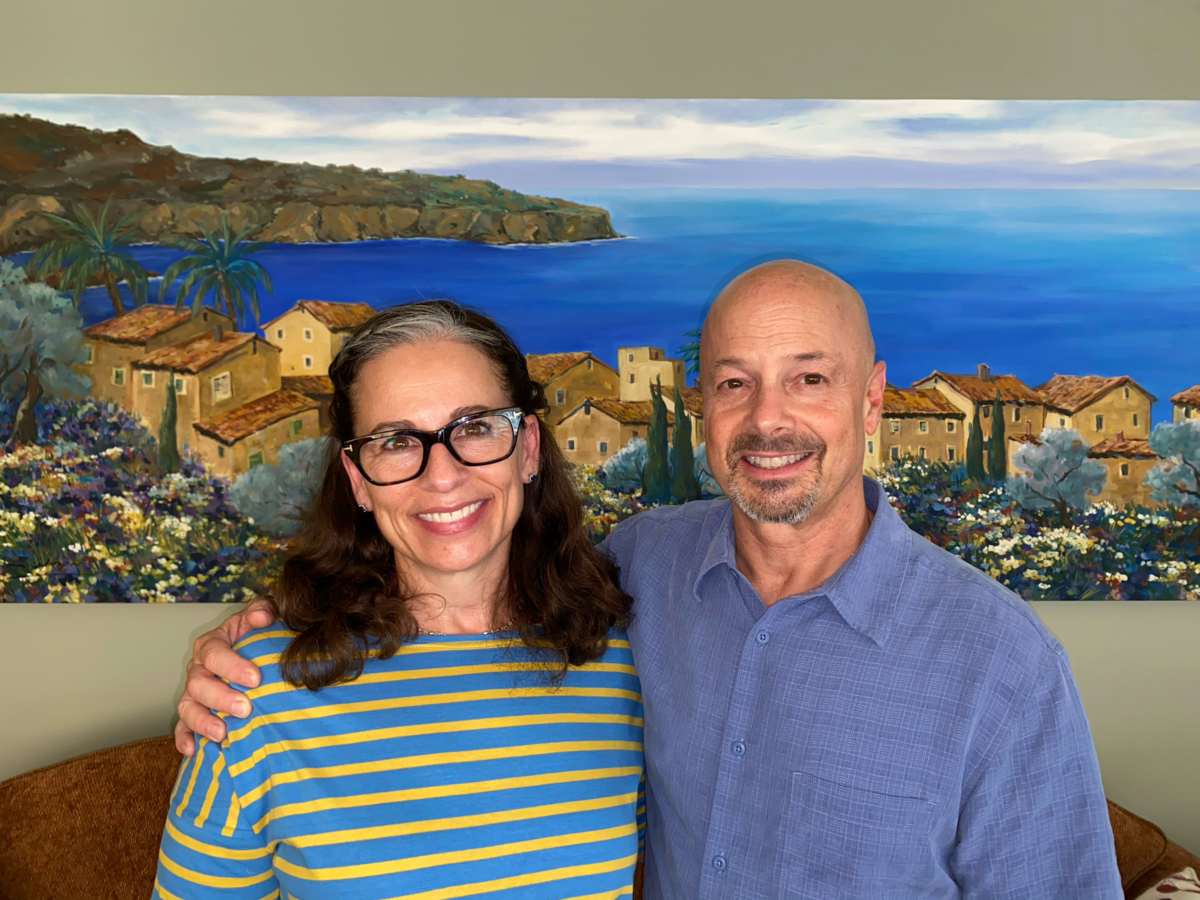Six years ago, when John and Lauren Liberati were establishing an endowment to support graduate students in the physics department, they had one caveat: they didn’t want to give any criteria for how the recipient was chosen.
As a child, Lauren Liberati was a reluctant reader, not learning to read until the summer before third grade. She spent those summers in Illinois with grandmother, who would take her to a small public library in her hometown that had a children’s reading program. Years later, when she was a starving student getting a degree in library sciences at UCLA, she would send the children’s department of that library $100 a year.
“I don’t think they even knew who I was, and I don’t think they could really do much with just $100 a year,” she said. “But to me it meant a lot, it was a way to acknowledge the role that program played in this huge change in my life.”
It was around this time that her close friend and UCLA roommate introduced her to her husband John, who was also at UCLA working towards a PhD in physics. Since high school he was attracted to the idea of fusion technology and the promise of clean energy. UCLA’s well-known plasma physics group seemed like the perfect place for him to pursue his work, but John would never have been able to make it here if not for support from the department.
“I came from a middle class family and the cost of being a graduate student, especially in Los Angeles, can be daunting,” said Jon. “The physics department offered me a teaching assistant position, without which I don’t think I would have been able to afford to continue my research.”
“I was just trying to help a student like myself. Someone who might not have much money, or might even be starting a family. It was less important to us what they were researching or what they had achieved. We just wanted to help,”
John liberati
Thanks in part to that early support, and the wonderful experience and education they both received at UCLA, the Liberatis are doing much better today. In fact, they’ve been successful enough to do much more than they could have as students. The fellowship they endowed is going directly to help support the every day needs of students.
“I was just trying to help a student like myself. Someone who might not have much money, or might even be starting a family. It was less important to us what they were researching or what they had achieved, we just wanted to help,” said John.
This exact outlook has inspired Dean Miguel Garcia-Garibay. The division of physical sciences has now set up a matching fund to support graduate students in this same way. By understanding that graduate student success is often tied deeply to time and opportunity, the division is devoted to ensuring that the kind of the support John and Lauren have helped champion can be expanded to even more students.
“It takes a million grains of sand to make a breach, right,” said Lauren when asked what she would say to others interested in supporting students. “Every little bit counts and you have to start somewhere.”
But the graduate students themselves could also be thought of like grains of sand on a beach. Each one of them is only a small part of the physical sciences world. But only by supporting them all, whatever their needs might be, can we build a beautiful beach.
 The fellowship John and Lauren endowed is going directly to help support the every day needs of students.
The fellowship John and Lauren endowed is going directly to help support the every day needs of students.